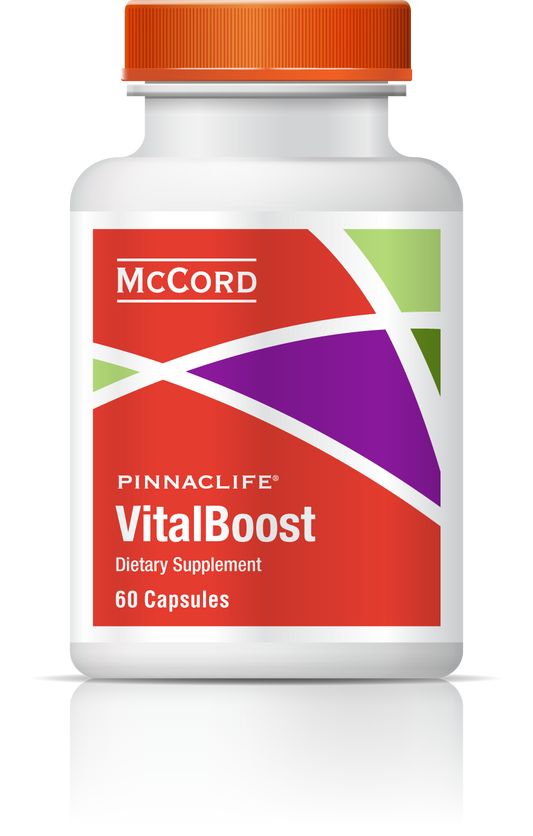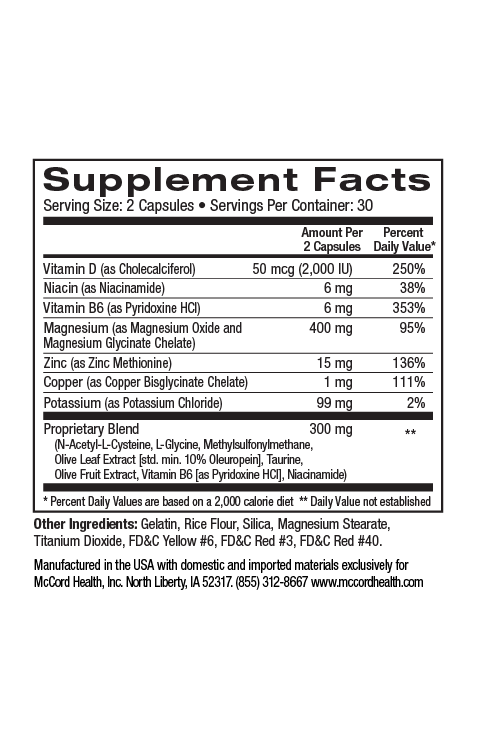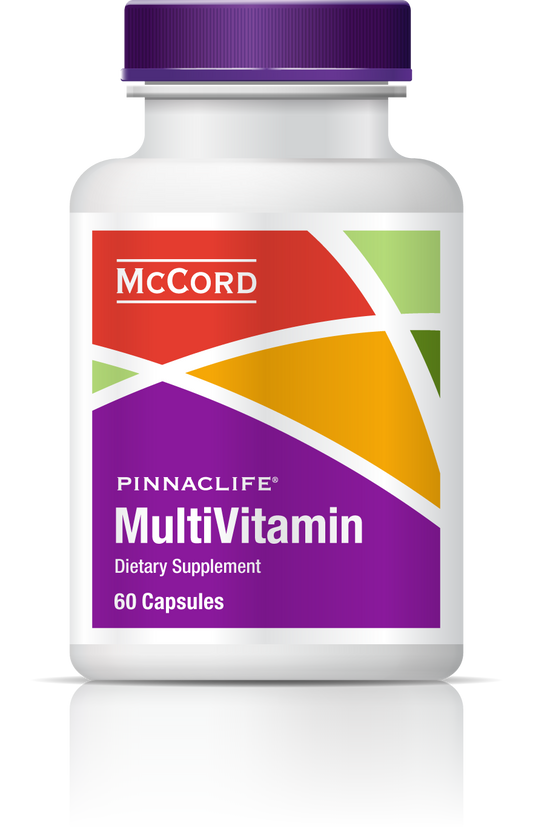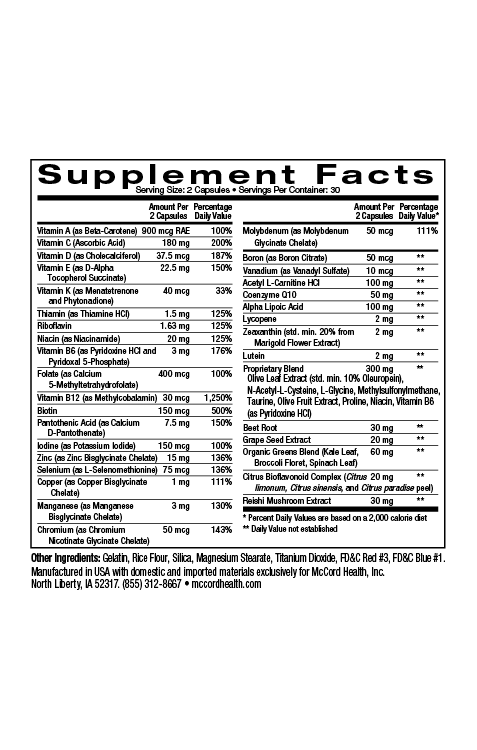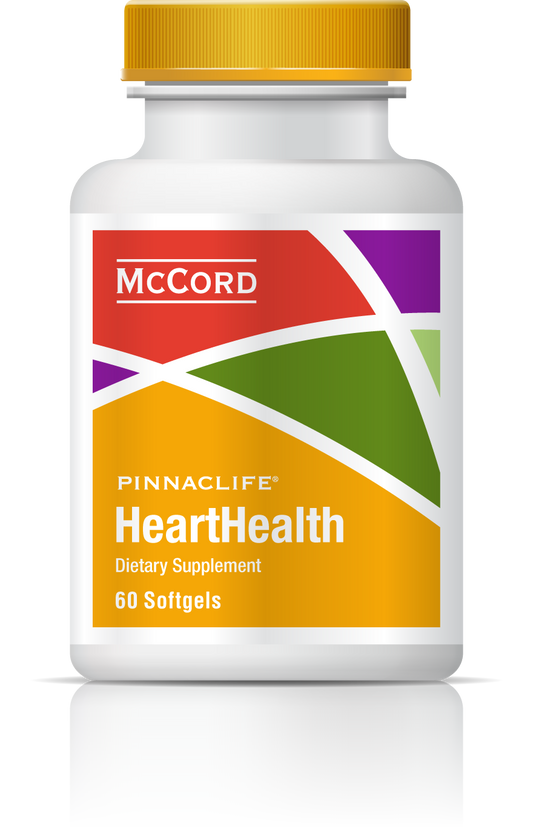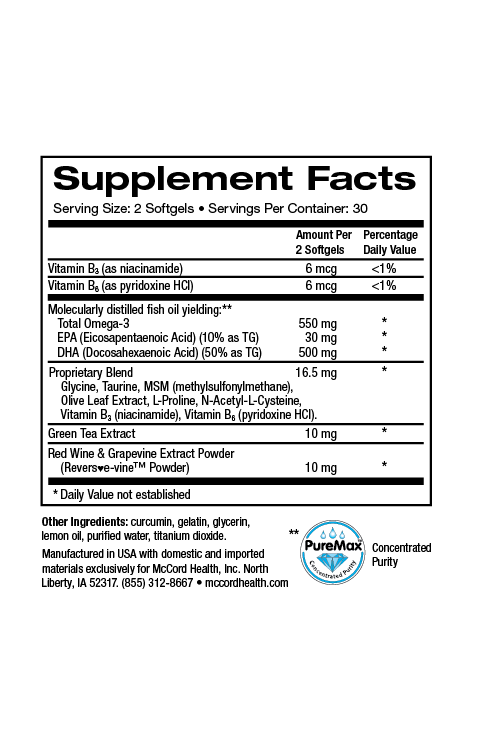Many people experience insomnia that can contribute to inflammatory diseases including depression, diabetes and Alzheimer’s disease. Chronic sleep deprivation has negative effects on the immune system and may lead to increased infections. Melatonin, the hormone known to promote sleep can increase immunity and help those with chronic insomnia or jet lag. In addition, melatonin and magnesium found in SleepHealth may help decrease inflammation along with Proprietary Blend. Melatonin and Proprietary Blend also have antioxidant activities and may reduce oxidative stress that can result from persistent inflammation associated with chronic sleep deprivation.
- Insomnia and chronic sleep deprivation are fairly common
- Sleep deprivation results in decreased immune responses and increased infections
- Immune responses and healing increase during sleep
- Sleep deprivation may lead to persistent inflammation
- Melatonin, magnesium and Proprietary Blend may help decrease inflammation
- Melatonin keeps the sleep-wake cycle in sync with the circadian rhythm
- The antioxidant activities of melatonin may help reduce oxidative stress that can result from persistent inflammation
Greater than 25% of people in the United States have problems sleeping and almost a third of adults have experienced insomnia. Insomnia contributes to the risk of inflammatory diseases including depression, cardiovascular disease, diabetes, and neurodegenerative diseases like Alzheimer’s disease1. Besides insomnia, the amount of time people normally spend sleeping has steadily declined. In fact, it is very likely that our society is chronically sleep deprived and that this has a negative effect on our immune systems2.
Have you ever felt that not getting enough sleep made you more prone to getting a cold or the flu? After getting a cold or the flu, did it seem like sleep was the best remedy? In fact, there is scientific evidence to back up the idea that sleep helps your body fight off an infectious disease. Some studies have found that sleep deprivation led to a 50% decrease in immune responses to vaccination against viruses including influenza. Other studies have shown decreased immune responses to influenza in sleep-deprived models. Chronic sleep loss in shift workers is also associated with increased infections3.
The sleep-wake cycle is regarded as the most obvious manifestation of the circadian (24 hour) rhythm found in the body. Evidence suggests that a number of immunological functions depend on the circadian rhythm and getting regular sleep. In fact, decades of research provide support for the popular wisdom that “sleep helps healing”. Interestingly, it’s during sleep when most biological processes have slowed that immune activation occurs. This activation involves inflammation, protein synthesis and immune cell proliferation, and the redirection of energy towards immune responses4. In other words, it seems your body is best equipped to heal and fight infections while you sleep.
Melatonin Helps Regulate the Circadian Rhythm
Typically, inflammation decreases as you progress towards waking, but with sleep deprivation, inflammation can persist due to decreased regulation4,5. Recent studies also demonstrate that circadian misalignment (when sleep is disrupted) induces inflammation6. The hormone melatonin, known to promote sleep, is produced naturally at night in a dark environment. The circadian rhythm of melatonin is compromised by aging and certain conditions including cardiovascular and neurodegenerative diseases7,8. Melatonin found in Pinnaclife® SleepHealth helps regulate the circadian rhythm. In fact, melatonin administration can help induce sleep in people with disrupted circadian rhythms such as those with chronic insomnia or jet lag8.
Melatonin also has immunoregulatory properties and has been shown to increase immunity in situations where the immune system is depressed9. In addition, melatonin has anti-inflammatory activity and can scavenge free radicals known as reactive oxygen species (ROS) that are produced during inflammation4,9,10. Inability to eliminate ROS using the natural defense system that includes defense enzymes such as superoxide dismutase (SOD) results in oxidative stress11. Proprietary Blend found in SleepHealth includes other powerful antioxidants like the olive polyphenols, hydroxytyrosol and oleuropein as well as N-acetylcysteine (NAC), methylsulfonlymethane (MSM) and taurine to help decrease oxidative stress12-16. Moreover, melatonin, hydroxtyrosol, oleuropein and NAC activate manganese SOD (MnSOD)17-20.
Pro-inflammatory molecules (cytokines) are triggered early during sleep and it has been suggested that this is in response to “danger signals” produced during the active wake period. These signals may result from cellular stress from physical activity or infections, or they may result from cellular injury4. Interestingly, pro-inflammatory cytokines can also induce sleepiness when an individual is awake, which helps explain why a person feels tired during an infection. On the other hand, chronic inflammatory diseases like inflammatory bowel disease (IBD) and rheumatoid arthritis (RA) are often associated with sleep disturbances. In fact, 50% of RA patients report sleep disturbances including difficulty falling asleep, maintaining sleep or non-restorative sleep21.
Magnesium Helps Maintain Normal Circadian Rhythms for Sleep
Melatonin has powerful anti-inflammatory activity along with components of Proprietary Blend http://www.olivamine.com including hydroxytyrosol, oleuropein, MSM, NAC and taurine to help promote healthy levels of inflammation10,22-26. In addition, SleepHealth includes magnesium that has important anti-inflammatory activity and has been shown to be beneficial for maintaining normal circadian rhythms. Moreover, magnesium has also been found to improve insomnia symptoms and depression that have been associated with poor sleep27. SleepHealth includes impeccably sourced ingredients that have undergone rigorous scientific review to prove we renew, restore and repair cells.
References
- Neuropsychopharmacol 2017; 42: 129-155.
- Nat Rev Immunol 2004; 4: 457-467.
- J Allergy Clin Immunol 2005; 116(5): 1188-1198.
- Pflugers Arch 2012; 463(1): 121-137.
- Am J Clin Exp Immunol 2017; 6(6): 92-96.
- Brain Behav Immunol 2015; 47: 1-7.
- Br J Pharmacol 2018; 175: 3190-3199.
- Int J Clin Pract 2007: 61(5): 835-845.
- Endocrine 2005; 27(2): 189-200.
- Int J Mol Sci 2013; 14: 8638-8683.
- Curr Neuropharmacol 2009; 7: 65-74.
- J Agric Food Chem 2011; 59: 4473-4482.
- Sci Pharm 2010; 78: 133-154.
- Amino Acids 2004; 26: 203-207.
- Nutrients 2017; 9(3): 290, 1-21.
- Life Sci 2015; 121: 110-116.
- Biochem Res Int 2016; 2016: ID5857940, 1-8.
- J Biol Regul Homeost Agents 2014; 28: 105-116.
- Age 2012; 34: 95-109.
- Cancer Res 2007; 67: 6392-6399.
- Physiol Rev 2019; 99: 1325-1380.
- Planta Med 2011; 77: 1890-1897.
- Int J Mol Sci 2014; 15: 18508-18524.
- World J Diabetes 2014; 5: 679-710.
- Biol Pharm Bull 2009; 32: 651-656.
- Amino Acids 1996; 10: 59-71.
- Nutrients 2018; 10: 1354, 1-11.

